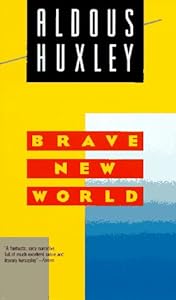Welcome, welcome! I actually
wrote this post up a while ago, on my smart phone, and then it decided
to delete itself. Smart phone my donkey.
Anyways, let’s
envision it’s a Sunday morning. Hymns have been… Well they’ve been. The
sermon just didn’t resonate, and the cookies, the ones left over after
the hoard of famished seven year olds were done pilfering, were… flax
bran raisin. Or cardboard. You’re not quite sure. And oh yes, you’re
thirteen. So in your thirteen-year-old wisdom you come marching up to
me, your youth leader, and announce that you’re just not sure why you
even come to church.
Now,
presuming that I am having a particularly enlightened morning, and
managed to win the race against the seven year olds, here is the answer I
would give you:
Church is not about “Church”.
It’s about you and me. It is about having a home, a family and a
community. Let me take you back to when I myself was thirteen. The first
year I went to Naramata. I was there for four days and in those four
days grew up about four years. I learned what it meant to be
unconditionally accepted, to laugh freely and not in turn be laughed at. To exist in intentional community. Then,
then we would fast forward to age fourteen, finally old enough to
participate in the crew program at Camp Pringle. Learning to lead and to
teach, to be validated and to validate, to build friendships that are
still going strong today. An extra strong dose of intentional community.
Then
I’d tell you about the tough stuff. As you looked up at me, eyes wide
and mouth slightly ajar, I would tell you about age nineteen. Nineteen,
when death introduced herself to me, and began a cascade of toils and
trials that systematically mangled my soul. When for a few months, life
became a shadow. And yet through it all, never have I come closer to my
creator, felt such powerful community – absolute grace.
I’d
tell these things to you, my little cauliflower, because they were all
experiences that were deeply intertwined with the church and my own
faith. They all shaped who I am now.
Okay,
let’s ground this idea in theology. The B-book. La Biblia. Let’s go
back about, oh, 1982 years or so, to when there was a dude going around
creating a bit of havoc in the Roman empire. When asked “Teacher, what
is the greatest commandment in the law?” He did not respond “Go to
church every single Sunday, try to stay awake, and learn something” he
said “love the lord your god with all your heart and soul and mind… and
love your neighbour as yourself”. (It’s probably frowned upon to edit
quotes from the bible, but hey, I’m not the first…). Please note the
words ‘love your neighbour’. Now, I understand these words to mean, ahem, to build community. To show others true, deep, and complete love.
So.
When you ask me, “Church, why bother?”, and I tell you all of this,
what I want you to take away is the power of the United Church, the
power of this awesome community that can be found in all of its
ministries, from pews to canoes. And I’d remind you that it’s a package
deal - if the buck stops with you, what about that little boy who’s
never felt like he’s belonged? That little girl who desperately needs
acceptance? Just sayin’.
Until we meet again, I'll bring the paragraphs, you bring the licorice,
- Hanna

